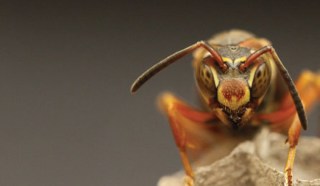Life
Sign up for our newsletter
We summarize the week's scientific breakthroughs every Thursday.
-
 Animals
AnimalsRight eye required for finding Mrs. Right
Finches flirt unwisely if they can only use their left eyes.
By Susan Milius -
 Chemistry
ChemistryChemical bond shields extreme microbes from poison
Molecular structure explains how ‘arsenic life’ bacteria instead survive by fishing out phosphate from their surroundings.
-

-
 Life
LifeVampire squid no Gordon Gekko
Recently equated with greedy financiers, Vampyroteuthis infernalis is not really all that rapacious.
By Susan Milius -
 Life
LifeBreast cancer gets genetic profile
Insights from new data may help improve treatment for some types of disease.
-
 Life
LifeBirds catching malaria in Alaska
The mosquito-spread disease may be transmitted north of the Arctic Circle as climate shifts.
By Susan Milius -

-
 Paleontology
PaleontologyThe Last Lost World
Ice Ages, Human Origins, and the Invention of the Pleistocene, by Lydia V. Pyne and Stephen J. Pyne.
By Sid Perkins -
 Neuroscience
NeuroscienceNonstick trick in the brain
Getting drugs into the brain has proved to be a nanoscale puzzle: Anything bigger than 64 nanometers — about the size of a small virus — gets stuck in the space between brain cells once it gets through the blood-brain barrier. Justin Hanes of Johns Hopkins University School of Medicine and colleagues got around this rule by coating particles destined for brain cells in a dense layer of a polymer called polyethylene glycol.
-
 Animals
AnimalsFace Smarts
Macaques, sheep and even wasps may join people as masters at facial recognition.
By Susan Milius -
 Humans
HumansAfricans’ genes mute on human birthplace
Latest DNA studies confirm previous research on the prehistory of African groups, but still can’t locate the root of the species.
By Erin Wayman -
 Math
MathBumblebees navigate new turf without a map
The insects can quickly calculate the best route between flowers.